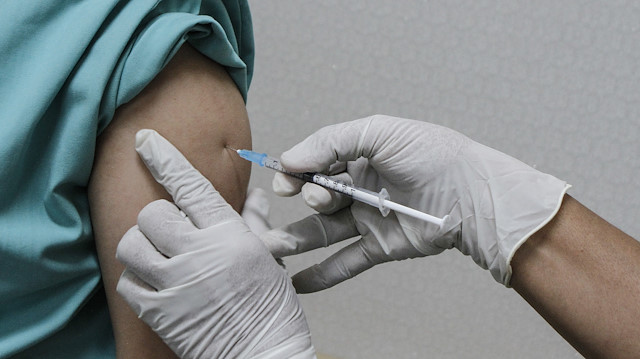
COVID-19 restrictions could not be lifted due to a "slow" vaccine rollout by the EU, the Hungarian foreign minister said Thursday.
“Everyone was expecting that the vaccination will be launched at a tremendous rate in the EU, which will allow the existing restrictive measures in Europe to be lifted, but the expectation could not be fulfilled by the European Commission,” Peter Szijjarto told a press conference in the capital Budapest.
He said EU-supported vaccines reached member states quite late, and in the meantime people in the US, UK and Israel were already getting inoculated.
The minister said that Hungary's decision to keep an eye on every promising vaccine, regardless of whether they are developed in the West or the East, has been proven right.
The EU has approved COVID-19 vaccines developed by Pfizer-BioNTech and Moderna, while it is assessing the one developed by Oxford-AstraZeneca. The 27-member bloc has signed agreements with six pharmaceutical companies to purchase about 2 billion doses.
Still, leaders have come under fire for their relatively slow vaccine rollout programs, compared with those in Israel and elsewhere.
Hungary took delivery of the first shipment of Pfizer’s vaccine on Dec. 26, whereas the first doses from Moderna arrived on Wednesday.
It has vaccinated more than 96,000 people so far, mainly healthcare workers and elderly care home residents, according to Our World in Data, a global tracking website affiliated with Oxford University. More than 32 million doses have been administered in over 50 countries.
With 1,926 new confirmed cases and 118 related deaths, the overall caseload in Hungary now stands at 347,636, including 11,066 fatalities.
Meanwhile, Chief Medical Officer Cecilia Muller confirmed that a fast-spreading variant of coronavirus, first identified in the UK late last year, was detected in three patients in the Central European country.
She called on healthcare staff to get inoculated “so that we can move on along the vaccination list."
The CMO said vaccines are being administered continuously, with the process only being slowed down by the shipment of new doses. Vaccine recipients will begin receiving their second doses on Jan. 18, Muller added.
*Writing and contribution by Busra Nur Bilgic Cakmak in Ankara














